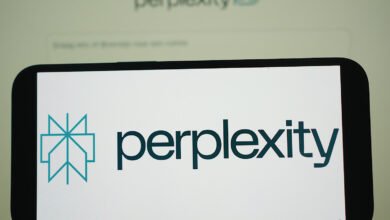Perplexity’s Free $200 AI Browser Fights ‘AI Slop’

▼ Summary
– Perplexity is making its AI-native browser Comet permanently free worldwide to combat low-quality AI-generated content on the internet.
– The free version of Comet includes rate limits and can summarize webpages, extract key details, and navigate links for users.
– Perplexity aims to challenge Google Chrome’s dominance by offering an AI-focused browser that helps users find high-quality sources.
– Perplexity launched Comet Plus, a $5 monthly add-on providing access to content from media partners like CNN and The Washington Post, sharing 80% of subscription revenue with publishers.
– Perplexity’s CEO stated Comet is designed as a personal AI assistant rather than a direct competitor to Chrome, despite previously making a $34.5 billion bid to acquire Chrome.
In a bold move to combat the rising tide of low-quality AI-generated content online, Perplexity has announced it will make its AI-native browser, Comet, permanently free for all users worldwide. Previously available only through a $200 monthly subscription, this strategic shift aims to provide universal access to tools that filter out digital noise and prioritize high-quality information. Perplexity’s CEO, Aravind Srinivas, emphasized the company’s mission during a recent launch event, stating, “We want to build a better internet, and that needs to be accessible to everybody.” While the free version will include certain usage limits, it retains core functionalities like summarizing webpages, extracting key details, and navigating links on behalf of the user.
Comet, which first debuted in July, is positioned as a direct challenge to the dominance of conventional browsers, particularly Google Chrome. Srinivas pointed out that distinguishing between human and AI-created content is becoming increasingly difficult, making tools like Comet essential for meaningful research. He remarked, “I think slop is fundamentally going to be easier to create now, and it’s going to be hard to distinguish if something is AI or human on the internet.” Perplexity’s press release also took a swipe at “long-promised AI browsers from legacy companies,” underscoring the startup’s ambition to innovate where others have lagged.
Despite Chrome’s vast user base exceeding three billion, Comet has already attracted a waitlist numbering in the millions. Google has begun integrating AI features into Chrome, but Perplexity believes its specialized, assistant-like approach offers a distinct advantage. In addition to the free browser, Perplexity introduced Comet Plus, a $5 monthly add-on that grants users access to content from major media partners. These include CNN, The Washington Post, Fortune, the Los Angeles Times, and Condé Nast titles such as The New Yorker and Wired.
This partnership initiative arrives as Perplexity confronts legal challenges from publishers like Dow Jones and the New York Post, which allege the company’s AI improperly uses their content. Perplexity has denied these claims in court and points to Comet Plus as evidence of its commitment to fair revenue sharing, noting that it allocates 80% of subscription proceeds to publishers. Srinivas affirmed, “We have always been clear that a product like ours requires high-quality sources to exist on the web.”
In a surprising twist earlier this year, Perplexity made a $34.5 billion offer to acquire Chrome if Google had been forced to divest it as part of a monopoly case. Although the U.S. government ultimately allowed Google to retain Chrome, Srinivas expressed no disappointment, emphasizing that Comet is designed as a personal AI assistant rather than a conventional browser. He stated, “I think Comet is not just another browser meant to take market share away from Chrome. That’s kind of how Microsoft would approach things.”
(Source: Business Insider)





